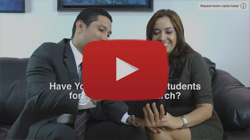 It’s a phrase uttered in boardrooms, sales calls, and casual conversations alike—“I’ll think about it.” On the surface, it suggests consideration, an open-ended decision still in progress. But beneath its polite exterior, an unspoken reality lurks: in most cases, it really means “probably not.”
It’s a phrase uttered in boardrooms, sales calls, and casual conversations alike—“I’ll think about it.” On the surface, it suggests consideration, an open-ended decision still in progress. But beneath its polite exterior, an unspoken reality lurks: in most cases, it really means “probably not.”
How did these five words become the linguistic equivalent of a ghostly handshake—an agreement that exists in name only? What unseen psychological forces transformed this once-neutral phrase into a coded rejection?
The answer lies in our innate discomfort with direct refusal. Humans are social creatures, wired to avoid conflict and preserve relationships. Saying “no” outright can feel too final, too confrontational. Instead, people lean on ambiguity, choosing socially acceptable deferrals that soften the blow while leaving the door slightly ajar.
But here’s where the mystery deepens: why do we all seem to instinctively understand this hidden meaning? Over time, cultural norms and repeated experiences have trained us to recognize “I’ll think about it” as a diplomatic dodge—a signal that no further action is likely. It’s a shared secret, an unspoken agreement where both sides know the truth but play along anyway.
And yet, the phantom agreement carries real consequences. In business, it breeds false hope, wasted follow-ups, and prolonged indecision. Deals stall, negotiations drag on, and opportunities vanish into the ether, all because a definitive answer was never given.
So how do we solve this puzzle? By bringing the hidden message to light. Recognizing “I’ll think about it” for what it truly is allows us to cut through ambiguity and encourage more honest conversations. Whether by gently prompting for clarity (“What concerns do you have?”) or offering an easy exit (“Would it be fair to say this isn’t the right fit?”), we can transform vague hesitations into decisive outcomes.
The mystery of the phantom agreement isn’t just about language—it’s about the silent forces shaping our interactions. And once you learn to decode them, you’ll never hear “I’ll think about it” the same way again.
So, the question remains: Will you accept the illusion, or will you uncover the truth?
Read more

 "What if your attachment to being a "good" person is holding you back from actually becoming a better person? In this accessible talk, social psychologist Dolly Chugh explains the puzzling psychology of ethical behavior — like why it's hard to spot your biases and acknowledge mistakes — and shows how the path to becoming better starts with owning your mistakes. "In every other part of our lives, we give ourselves room to grow — except in this one, where it matters most," Chugh says."
"What if your attachment to being a "good" person is holding you back from actually becoming a better person? In this accessible talk, social psychologist Dolly Chugh explains the puzzling psychology of ethical behavior — like why it's hard to spot your biases and acknowledge mistakes — and shows how the path to becoming better starts with owning your mistakes. "In every other part of our lives, we give ourselves room to grow — except in this one, where it matters most," Chugh says." "Deciding which projects should get our attention, or organizing with partners which household tasks are at the top of the to do list, sucks up our energy and our time. We can spend so much of our time simply organizing our schedule that we’re exhausted before we even get to the work that needs doing!"
"Deciding which projects should get our attention, or organizing with partners which household tasks are at the top of the to do list, sucks up our energy and our time. We can spend so much of our time simply organizing our schedule that we’re exhausted before we even get to the work that needs doing!"
 ". . . For the past 25 years, psychology professor Lisa Feldman Barrett [photo, left] has mapped facial expressions, scanned brains and analyzed hundreds of physiology studies to understand what emotions really are. She shares the results of her exhaustive research — and explains how we may have more control over our emotions than we think."
". . . For the past 25 years, psychology professor Lisa Feldman Barrett [photo, left] has mapped facial expressions, scanned brains and analyzed hundreds of physiology studies to understand what emotions really are. She shares the results of her exhaustive research — and explains how we may have more control over our emotions than we think."


